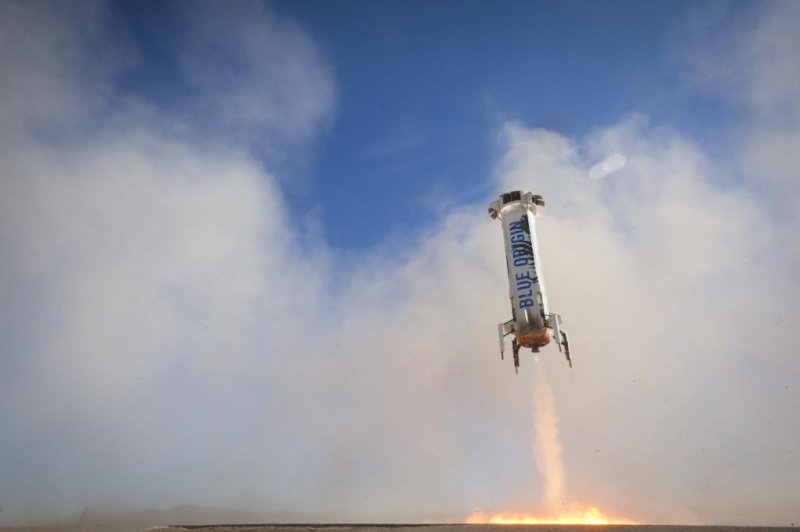The New Shepherd rocket has now thrice landed upright after trips to the edge of space and back. Photo by Blue Origin
KENT, Wash., April 3 (UPI) -- It's the third time this particular Blue Origin rocket, the reusable New Shepherd rocket, has gone to the edge of space, and it's the third time it has landed safely upright upon its return.
"Flawless BE-3 restart and perfect booster landing. CC chutes deployed," Blue Origin founder Jeff Bezos wrote on Twitter.
Though the result was the same, Saturday's test flight was slightly different than the first two. Engineers had the descending rocket wait a bit longer to reignite this time around, leaving less time -- and just 3,600 feet -- to maneuver before touching down.
Blue Origin scientists also tested a new algorithm that triggers the separation of crew capsule and rocket. During the first two flight, the rocket and capsule were empty, but the latest trip carried two microgravity experiments.
One of the experiments aims to shed light on the behavior of dust particles in suborbital space. Results from the test could help scientists better understand how dust particles coalesce to form planets, satellites and planetary rings.
"We have been waiting for this day for a long time," Joshua Colwell, a physics profess at the University of Central Florida, said in a press release. "A lot of talented students have helped make this happen. I'm just thrilled that we're going to get data back immediately after flight and get a look at the strange behavior of dust in a microgravity space environment."
Though Bezos' operation is currently offering scientists and their experiments a ride to space, the company's larger aim is to establish a space tourism industry. Blue Origin expects to begin taking humans to space in 2018.















